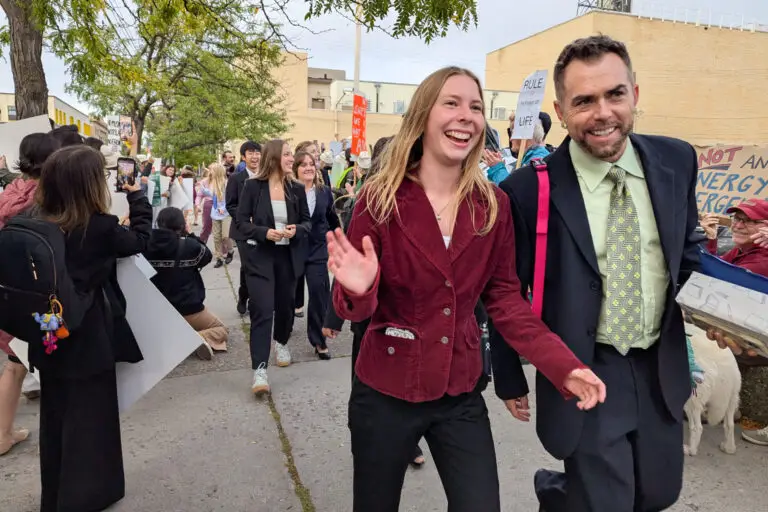MISSOULA, Montana — In a packed federal courtroom, a group of young Americans confronted the U.S. government over what they call a deliberate assault on their right to a livable future.
At the heart of the case are executive orders issued under the Trump administration that aggressively favored fossil fuel expansion. The plaintiffs—22 youths from across the country—argue these policies trample their constitutional rights by worsening the climate crisis and eroding environmental protections.
Their legal team framed the trial as a historic test: can a government’s energy agenda infringe upon the inalienable rights of its youngest citizens?
Voices From the Front Lines
The hearing shifted quickly from legal theory to lived experience. Teenagers recounted wildfires, heat waves, and floods that forced evacuations, destroyed homes, and left behind lingering trauma.
One plaintiff described packing stuffed animals into a bag while flames approached her family’s property. Another recalled nearly dying from heat stroke. Each story underscored the claim that climate change is not a distant threat—it is already shaping their lives.
The Government Pushes Back
Lawyers representing the administration countered that the lawsuit itself is undemocratic. They argued that energy policy is a political question, already decided through elections, not a matter for courts.
In one exchange, government attorneys grilled a teenager about her family’s horses, suggesting the animals’ emissions made her a hypocrite. The line of questioning highlighted the administration’s attempt to challenge not just the science, but the personal credibility of the plaintiffs.
Expert Testimony
The plaintiffs called on climate scientist Steven Running, co-author of a Nobel-winning UN climate report, who testified that fossil fuel expansion would “unquestionably” worsen the harm already facing youth. Former White House advisor John Podesta added that this case, unlike past sweeping climate lawsuits, narrowly targets specific executive actions that directly harm young people.
A Precedent in the Making?
The plaintiffs seek an injunction to halt enforcement of the contested orders, a ruling that could set the stage for a full trial. While state-level victories in Montana and Hawaii have energized youth-led climate litigation, the federal track record remains bleak. Previous cases, including the long-running Juliana v. United States, faltered at higher courts.
Judge Dana Christensen, with a history of pro-environment rulings, presides over the proceedings. Yet even a win here may ultimately collide with a conservative-leaning Supreme Court.
For the young plaintiffs, however, the trial is less about legal odds and more about moral urgency. As one put it on the stand: “A better future is possible.”

